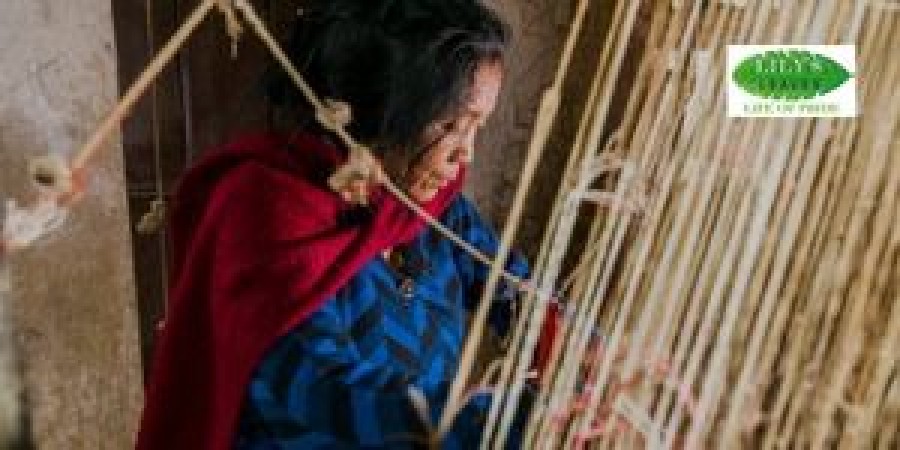




Have you ever stopped to think about where your money goes when you make a purchase? You are voting for the world you choose to live in every time you make a purchase. That’s why supporting local artisans and social enterprises is more than just a simple transaction—it’s a chance to make a real difference.
Supporting these companies not only helps people make a living, but it also empowers entire communities, preserves priceless cultures, and helps ensure a sustainable future. Creating an impact that extends much beyond your purchase is more important than simply purchasing a thing.
In this blog, we’ll explore why supporting local artisans and social enterprises matters and how your choices can help drive positive change. Let’s dive into the impact you can make with each purchase you make.
Local artists are talented producers of handcrafted items that frequently reflect the customs, culture, and artistry of their local communities. Artists infuse our everyday lives with creativity and culture via their beautiful textiles and delicate pottery.
However, social enterprises are companies that operate for reasons other than making money. They concentrate on resolving cultural, social, or environmental problems. Profits are put back into the community to assist local projects, create jobs, or encourage sustainable habits.
For instance, consider Lily's Leaves in Nepal. Through the training of useful skills like tailoring and sustainable product manufacturing, this social enterprise helps deaf and poor women. By planting trees, they not only give women work but also teach them how to be good environmental stewards.
By choosing to support local artisans and social enterprises, you’re helping to fuel economic growth in underdeveloped and marginalized areas. Here’s how:
Local artisans and social ventures often hire from within their own communities, creating jobs for people who might otherwise struggle to find employment. Lily’s Leaves provides training for women with disabilities and those from economically disadvantaged backgrounds, helping them achieve financial independence.
Over 70% of jobs worldwide are in small enterprises, including artisanal actions, according to the International Labour Organization (ILO). Small enterprises are even more important in developing nations, where they account for 80–90% of all jobs and are essential in helping to raise communities out of poverty.
When you support a local artisan, you’re investing in the local economy where they live. A 2019 study by the American Independent Business Alliance found that local businesses recirculate 48% of their revenue within the local community, compared to just 14% for chain retailers. This strengthens local economies, funding schools, health services, and infrastructure.
Supporting regional craftspeople and social entrepreneurs has both financial and cultural advantages. Here's how:
From ceramics to hand weaving, many artisanal talents are handed down through the years. Without assistance, these traditions might end. By enhancing communities with their artwork, history, and tales, local craftspeople guarantee that these customs endure.
Purchasing handcrafted goods contributes to keeping these customs alive for upcoming generations. The important role of craftsmen in conserving intangible cultural assets was highlighted in a 2017 UNESCO report. Social enterprises like Lily’s Leaves also involve younger generations in learning traditional arts, helping to create a new generation of craft lovers.
Crafts often represent the unique identity of a culture. When artisans thrive, communities can assert their identity on a global stage, whether through textiles, art, or food. Lily’s Leaves also produces handmade, sustainable products that showcase Nepal's cultural heritage.
One of the most compelling reasons to support local artisans and social enterprises is their positive effect on the environment.
Artisans usually source materials locally, leading to less transportation and a reduced carbon footprint. When compared to mass-produced goods, local products often have a much smaller environmental impact.
Lily's Leaves makes eco-friendly items in Nepal, such as natural sanitary pads and reusable bags, using sustainable, locally produced materials. This commitment lessens the carbon impact and contributes to environmental preservation.
For most local designers and social companies, using eco-friendly practices is a big concern. Because they use natural, repurposed, or upcycled materials, they help reduce waste. These businesses stand for sustainability rather than mass manufacturing.
Artisanal groups in Nepal are increasingly moving toward environmentally friendly production. For instance, the use of natural colors and locally obtained, sustainable materials has been strongly promoted by the Association for Craft Producers (ACP). ACP's environmental program seeks to reduce its carbon footprint by integrating eco-friendly techniques into every facet of its company operations.
This includes reusing materials, waste reduction strategies, and promoting handmade, biodegradable products.
While a precise national percentage is not available, this shift is evident through projects like the one led by the World Bank, which has impacted more than 7,500 rural artisans in Nepal by connecting them to sustainable markets and encouraging environmentally responsible practices.
Supporting local social entrepreneurs and artisans goes beyond just generating revenue; it creates opportunities for everyone to get involved and have a fair shot.
These programs focus on providing jobs and skill-building to women who are often left out, such as women, individuals with disabilities, and those from disadvantaged backgrounds. By empowering these groups, we help level the playing field and build a more inclusive, equitable society.
One of the main goals of artisan and social companies is to engage marginalized groups, including women, individuals with disabilities, and members of ethnic minorities. Lily's Leaves empowers deaf women by providing them with rewarding professions in tailoring, jewellery making, and product creation.
These ventures often focus on paying fair wages and offering dignified working conditions. With traditional businesses often exploiting labor, social enterprises give their workers respect, fair compensation, and growth opportunities.
You don’t need to be a millionaire or run a big campaign to create real change. Supporting local artisans and social enterprises can start with small, thoughtful actions, and those small steps add up more than you think.
Next time you shop, take a moment to look beyond the usual brands. Try choosing items that are handmade, ethically sourced, or locally produced. Ask where the product comes from and who it supports. When you buy from a local artisan or social enterprise, your money goes directly into someone’s hands who is trying to build a better life.
Love a product or story? Share it! Whether it’s a post on Instagram, a TikTok haul, or just chatting with friends and family, your voice matters. Raising awareness helps artisans and small enterprises reach more people, which means more support for their work.
Do you have skills in design, photography, marketing, or event planning? Offer your time and talent to local artisan groups or social businesses. Whether it's helping with a photo shoot or setting up a weekend market stall, your contribution can make a real difference—and it's a rewarding way to support local artisans and social enterprises, beyond just buying.
Supporting local artisans and social enterprises becomes far more meaningful when you look at examples like Lily’s Leaves, a powerful social enterprise based in Kathmandu. Their work focuses on empowering marginalized communities, especially deaf and underprivileged women, by combining skills-building, economic opportunities, and environmental impact.
Promoting Local Artisans: Empowering Deaf and Underprivileged Women: Lily’s Leaves doesn't just create eco-friendly products—it invests in people. The enterprise trains deaf women and women from low-income backgrounds in skills such as tailoring, jewelry making, and sustainable craftwork. These women go on to become self-employed artisans who produce fine, handcrafted goods that combine creativity and tradition.
Skill-Based Training: In-house training is offered to women in a variety of skills, including sewing reusable pads, making bags, and tailoring.
Income Opportunities: Graduates of the training are either employed at Lily’s Leaves or supported to start their own small artisan businesses.
Inclusive Workplace: The workshop and retail space offer a supportive, sign-language-friendly environment, fostering dignity and self-reliance.
By supporting local artisans and social enterprises like Lily’s Leaves, you’re not only purchasing handcrafted, meaningful items—you’re helping amplify the voices of artisans who are too often overlooked by traditional economic systems.
Eco-Friendly Innovation
In addition to producing recyclable and reusable goods, Lily's Leaves actively supports environmental sustainability and diligent consumption.
As part of urban forestry initiatives, their team is also planting trees in Kathmandu to encourage greener cities.
You have the chance to make a difference in the world with every purchase you make. You may contribute to the creation of a sustainable, inclusive, and culturally rich future by purchasing from regional artisans and social entrepreneurs. You're making investments in the things that really count—people, the environment, and goods.
Therefore, the next time you're thinking about making a purchase, examine whether you're helping anything useful.
By working together, we can make every choice matter. Contact Lily’s leaves to support Local artisans.
What is the difference between a social enterprise and a regular business?
While big companies put profit maximization first, social enterprises spend their income to address social challenges.
How do I know if an artisan product is made ethically?
You can check credentials, inquire about production, and purchase from companies with clear goals and open business processes.
How can I support Lily’s Leaves?
You can visit Lily’s Leaves website, spread the word about their mission, and consider collaborating or volunteering to make a greater impact.
What are some other examples of successful social enterprises?
The Ohio Artisan Collective and The Designerie are two other fantastic examples of social enterprises thriving through local support.
Where can I buy ethical products?
You can buy artisan-made ethical products from Lily’s Leaves, Mahaguthi, and ACP (Dhukuti).
748 views
CEO representing Lily Leaves in '9th COMMUNITY CONFERENCE" organized by The British School.
One-Day Workshop At Lily Leaves - 17th June 2023
Lily was joined by Santosh Shah, a former student of the school and winner of BBC's MasterChef.
This act not only empowered the individuals to start their own tailoring businesses
CEO Lily Katuwal and a group of visitors from Lily Leaves Social Enterprises distributed 135 school bags and uniforms in Bandipur, Siraha, demonstrating a commitment to social responsibility and fostering positive change in education for students facing financial challenges.
Volunteer from rato Bangala school Environment club
Explore how Lily’s Leaves empowers women through sustainable fashion, blending ethical craftsmanship with eco-friendly designs for a better future.
Rebuilding Nature in Swayambhu!
Equipped with new skills and gifted sewing machines, they're ready to launch their own businesses or join local enterprises.
Monkeys of Swayambhunath: Addressing Health Challenges with Care and Awareness
30 Grade 9 students from Rato Bangala School keeping Swoyambhu Clean & Green.
Lily Leaves handed out durable bags to Class 1-3 students at Saraswoti and Seti Devi Schools
We recently had the chance to speak at Kathmandu Forestry College (KAFCOL) on the topic “Greening Kathmandu: Urban Forestry through the Miyawaki Method.”
Bringing Life Back to Swayambhunath Religious Forest, a UNESCO World Heritage Site
Empowering Women & Ecosystems: Dhanushadham Wildlife Corridor Project Advances Community-Led Conservation
Recent protests across Nepal, especially the Gen G demonstrations, have seen streets filled with thick, black smoke from burning rubber tyres and plastics.